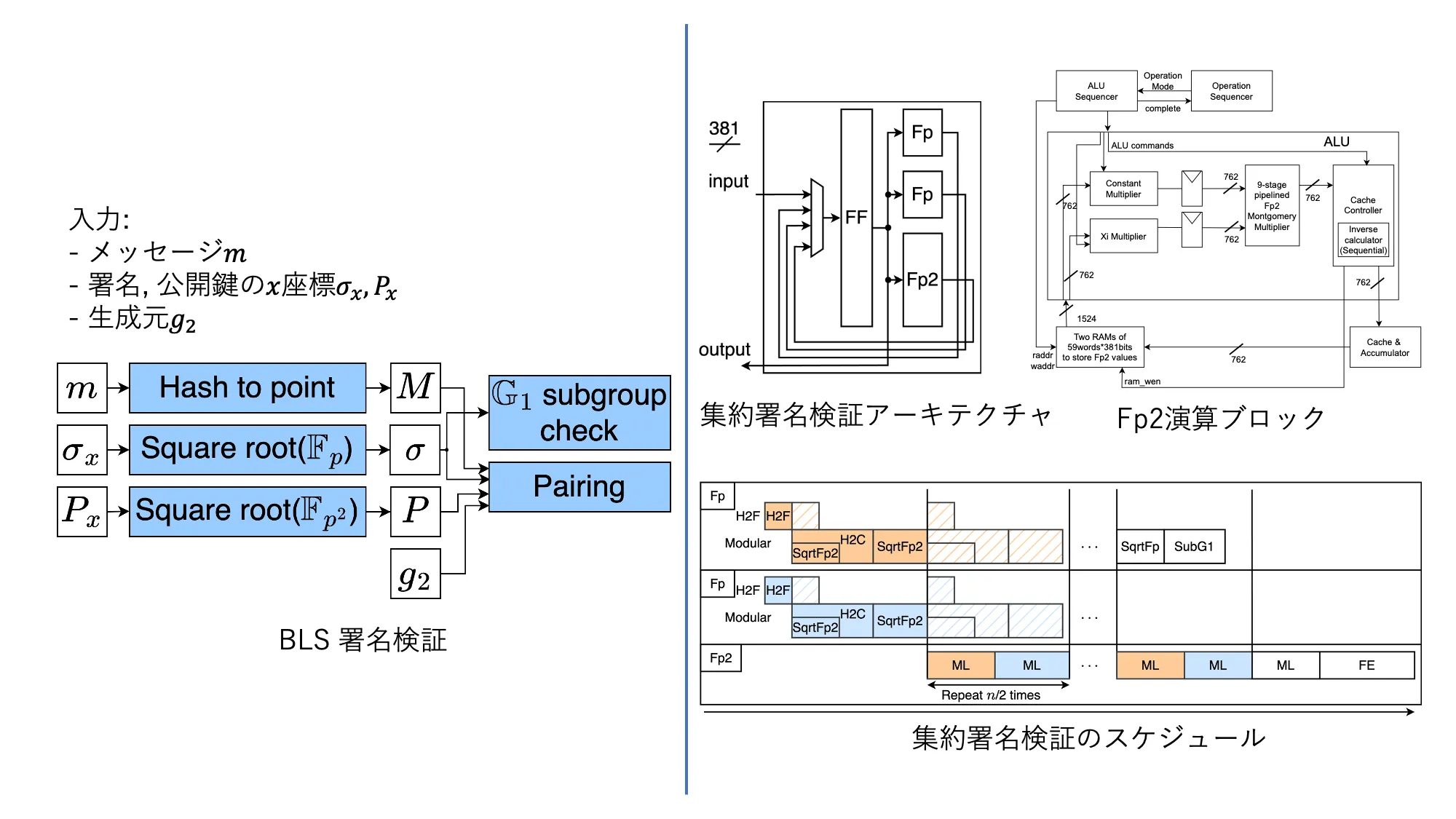Optimization of Advanced Cryptographic Design
Research Overview
Pairing-based cryptography (PBC) has become one of the most critical foundations in various modern cryptographic methods. Due to the extensive computations involved in PBC, high-performance accelerators are valuable for many applications. We aim to optimize cryptographic operations and have designed high-performance accelerators capable of executing pairing operations on several curves (asymmetric pairing: BLS12-381, BLS24-315, BLS24-317, and BLS24-509; symmetric pairing: SS1024). We are also exploring their applications in identity-based encryption (IBE), symmetric searchable encryption (SSE), and attribute-based encryption (ABE). The designs we’ve developed also extend to the acceleration of Hash-to-point operations. We are conducting research on reducing design time through automated scheduling generation and optimization of remainder multipliers.
Acceleration of BLS Signatures
Boneh-Lynn-Shacham (BLS) aggregate signatures, which can condense signatures from multiple individuals into a single signature, are anticipated for applications in blockchain technology. When aggregating 10 signatures, the signature length becomes 1/13th of that in the commonly used digital signature scheme ECDSA. The main challenge in the practical implementation of BLS signatures is the high verification cost involving the bilinear pairing mapping. Although there are examples of research on high-speed hardware implementing pairing mapping, there is no high-speed hardware implementation at the higher level of BLS signature schemes. Therefore, we are aiming to design dedicated hardware that accelerates the entire signature verification operation.
